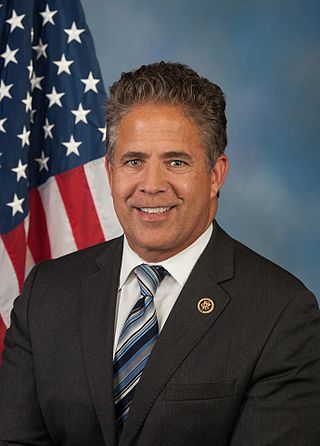A fantasy sport is a game, often played using the Internet, where participants assemble imaginary or virtual teams composed of proxies of real players of a professional sport. These teams compete based on the statistical performance of those players in actual games. This performance is converted into points that are compiled and totaled according to a roster selected by each fantasy team's manager. These point systems can be simple enough to be manually calculated by a "league commissioner" who coordinates and manages the overall league, or points can be compiled and calculated using computers tracking actual results of the professional sport. In fantasy sports, as in real sports team owners draft, trade, and cut (drop) players.

The Women's National Basketball Association (WNBA) is a women's professional basketball league based in the United States. It is composed of 12 teams. The league was founded on April 24, 1996, as the women's counterpart to the National Basketball Association (NBA), and league play started in 1997. The regular season is played from May to September, with the All-Star game being played midway through the season in July and the WNBA Finals at the end of September until the beginning of October.

Major League Lacrosse (MLL) was a men's field lacrosse league in the United States. The league's inaugural season was in 2001. Teams played anywhere from ten to 16 games in a summertime regular season. This was followed by a four-team playoff for the championship trophy, the Steinfeld Trophy, named after founder Jake Steinfeld. League attendance peaked at 6,417 in 2011 and the 2019 average was 4,587.

Fantasy football is a game in which the participants serve as owners and general managers of virtual gridiron football teams. The competitors select their rosters by participating in a draft in which all relevant National Football League (NFL) players are available. Fantasy points are awarded in weekly matchups based on the actual performances of football players in real-world competition. The game typically involves the NFL, but can also involve other leagues, such as the Canadian Football League or NCAA.

William Warren Bradley is an American politician and former professional basketball player. He served three terms as a Democratic U.S. senator from New Jersey (1979–1997). He ran for the Democratic Party's nomination for president in the 2000 election, which he lost to Vice President Al Gore.
Fantasy hockey is a form of fantasy sport where players build a team that competes with other players who do the same, based on the statistics generated by professional hockey players or teams. The majority of fantasy hockey pools are based on the teams and players of the ice hockey National Hockey League (NHL).
Fantasy baseball is a game in which the participants serve as owners and general managers of virtual baseball teams. The competitors select their rosters by participating in a draft in which all relevant Major League Baseball (MLB) players are available. Fantasy points are awarded in weekly matchups based on the actual performances of baseball players in real-world competition. The game typically involves MLB, but can also involve other leagues, such as American college baseball, or leagues in other countries, such as the KBO League.

Jon Daniel Runyan is an American athlete and politician who was the U.S. representative for New Jersey's 3rd congressional district from 2011 to 2015. He is a member of the Republican Party. Before entering politics, he played football for 14 seasons as an offensive tackle in the National Football League (NFL). He was a participant in the 2003 Pro Bowl following the 2002 NFL season.

The Arizona State Legislature is the state legislature of the U.S. state of Arizona. It is a bicameral legislature that consists of a lower house, the House of Representatives, and an upper house, the Senate. Composed of 90 legislators, the state legislature meets in the Capitol Complex in the state capital of Phoenix. Created by the Arizona Constitution upon statehood in 1912, the Arizona State Legislature met biennially until 1950. Today, they meet annually.
Fantasy basketball is a game in which the participants serve as owners and general managers of virtual professional basketball teams. The competitors select their rosters by participating in a draft in which all relevant National Basketball Association (NBA) players are available. Fantasy points are awarded in weekly matchups based on the actual performances of basketball players in real-world competition. The game typically involves the NBA, but can also involve other leagues, such as the Women's National Basketball Association (WNBA) or NCAA.
Fantasy golf is a game in which the participants assemble virtual teams of professional golfers. The competitors select their rosters by participating in a draft in which all relevant golfers are available, with games typically involving players in the US PGA Tour and the European Tour. Fantasy points are awarded based on those golfers' real-life performance in tournaments; many formats exist both for scoring and player selection.

Anthony E. Gonzalez is an American politician and former professional football player. He served as the U.S. representative for Ohio's 16th congressional district from 2019 to 2023.

Colin Zachary Allred is an American politician, lawyer, and former professional football player. A member of the Democratic Party, he is the U.S. representative from Texas's 32nd congressional district. The district includes the northeastern corner of Dallas, as well as many of its northeastern suburbs, such as Garland, Richardson, Sachse, Wylie, the Park Cities, and Rowlett.

Michael Dean Bishop is an American attorney and politician who was the U.S. representative for Michigan's 8th congressional district from 2015 to 2019. He is a member of the Republican Party. He previously served in the Michigan House of Representatives from 1999 to 2003, and the Michigan State Senate from 2003 to 2010 where he served as majority leader.

Procedures of the United States Congress are established ways of doing legislative business. Congress has two-year terms with one session each year. There are rules and procedures, often complex, which guide how it converts ideas for legislation into laws.
United States Congress and citizens describes the relation between the public and lawmakers. Essentially, American citizens elect members of Congress every two years who have the duty to represent their interests in the national legislature of the United States. All congressional officials try to serve two distinct purposes which sometimes overlap––representing their constituents and making laws for the nation. There has been debate throughout American history about how to straddle these dual obligations of representing the wishes of citizens while at the same time trying to keep mindful of the needs of the entire nation. Often, compromise is required.
The U.S. Congress in relation to the president and Supreme Court has the role of chief legislative body of the United States. However, the Founding Fathers of the United States built a system in which three powerful branches of the government, using a series of checks and balances, could limit each other's power. As a result, it helps to understand how the United States Congress interacts with the presidency as well as the Supreme Court to understand how it operates as a group.

The 2018 United States elections were held on Tuesday, November 6, 2018. These midterm elections occurred during Incumbent Republican President Donald Trump's term. Although the Republican Party increased its majority in the Senate, unified Republican control of Congress and the White House was brought to an end when the Democratic Party won control of the House of Representatives in what was widely characterized as a "blue wave" election as Democrats also gained governorships, other statewide offices, and state legislative chambers.
In the United States Congress, a bill is proposed legislation under consideration by either of the two chambers of Congress: the House of Representatives or the Senate. Anyone elected to either body can propose a bill. After both chambers approve a bill, it is sent to the President of the United States for consideration.

The 2021 Major League Baseball All-Star Game was the 91st Major League Baseball All-Star Game. The game was hosted by the Colorado Rockies and played at Coors Field on July 13, with the American League (AL) defeating the National League (NL) 5–2. It was the eighth consecutive All-Star Game victory for the AL.












